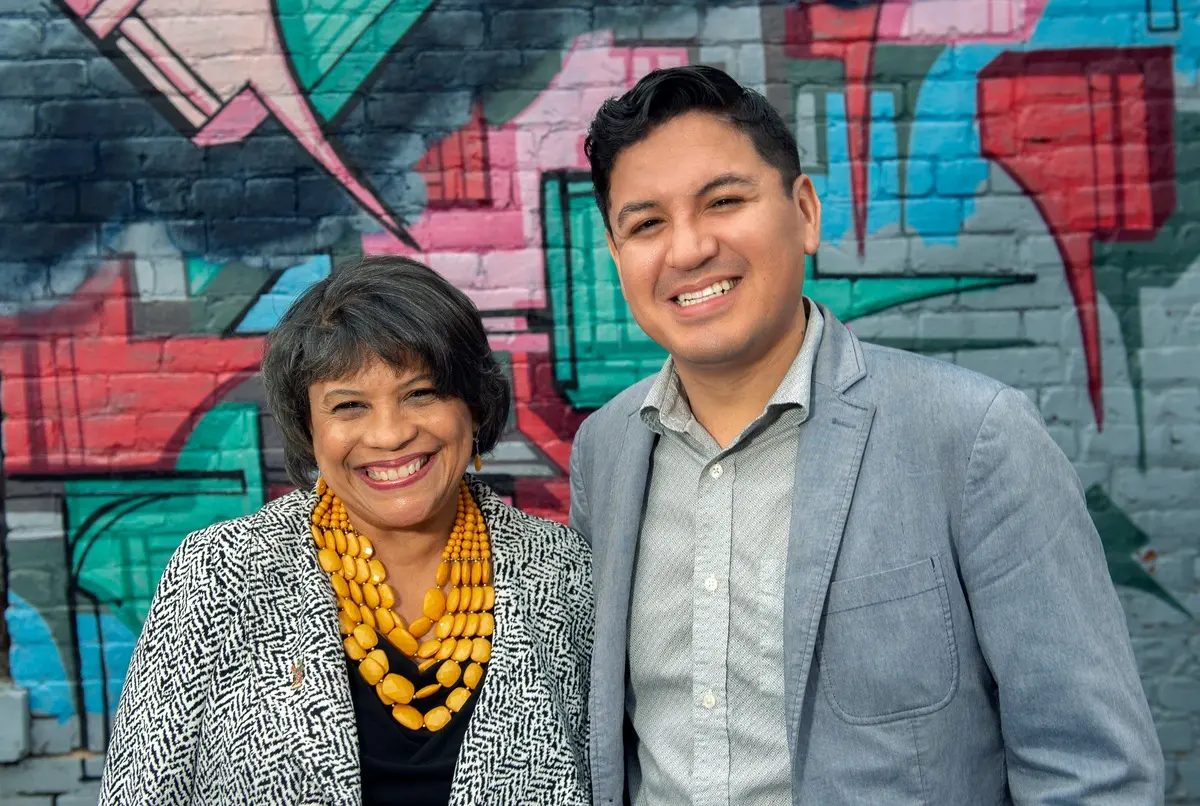As Latine students, faculty and staff represent a growing part of the diverse campus community, Virginia Commonwealth University is home to a new resource – El Centro – that will spotlight, support and amplify their experiences and opportunities.
El Centro means “the center” in Spanish, and its two faculty founders spent several years developing the concept. The director, Oswaldo Moreno, Ph.D., is an associate professor of psychology in the VCU’s College of Humanities and Sciences. The assistant director, Anita Nadal, is a teaching assistant professor of Spanish in the School of World Studies and a faculty fellow for community engagement in the College of Humanities and Sciences.
“It’s creating a sense of awareness, as well as a structured space to be,” Moreno said of El Centro, which is part of VCU’s Division of Inclusive Excellence.
The center’s official launch event – on Sept. 19 from 2:30 to 5 p.m. in Room 250 at James Branch Cabell Library – is open to the public and coincides with the first week of National Hispanic Heritage Month, which runs from mid-September to mid-October.
As the Latine population has grown in Virginia, its representation has risen in the VCU student body (to about 16%) as well as among faculty (6%) and staff (10%). El Centro will forge connections among them, including through mentorship initiatives, programs featuring scholars and community leaders, and funding that supports Latine scholarship and teaching.
Moreno noted the importance of approaches tailored to the cultural, linguistic, academic and personal/social needs of Latine students, which fosters an academic environment that promotes their success and growth. Initially, eight El Centro awards of $500 will be available to students and faculty who engage in Latine scholarship or pedagogy.
Moreno and Nadal navigated a number of challenges, including a launch that was scuttled by the pandemic, in bringing El Centro to fruition.
“There will be more challenges, but it’s very rewarding to see that we’re here – and seeing, through advocacy, that we move the needle forward,” said Moreno, whose instruction as a professor includes multicultural counseling. “I’m hoping when we’re looking back years from now, with the first-gen students coming through, we’ll see how El Centro played a key role. And we’ll see students feeling a sense of belonging, just as simple as coming together once a month. There’s a lot of personal lived experience and passion, but also hope in the future of what the center can do.”
Moreno and Nadal are planning a series of workshops that will touch on skill-building and other topics that empower VCU’s Latine community. El Centro also will assemble a community advisory board.
And the center’s plans include creation of an accessible database sourced from transdisciplinary research, with its information available for analysis and inclusion in academic papers and student theses or dissertations. Topics could include health and academic outcomes, disparities or inequalities at the local level, and the lived experiences and stressors of students.
On the latter subject, Moreno said one of El Centro’s missions is to show Latine first-generation students, who have lower graduation rates than other groups, that they are a crucial part of the academic community. That will be emphasized through mentorship and providing gathering spots around campus to share experiences – “even just being a Latine at a university,” he said.
“Perhaps it’s talking about and being mentored through the first-generation experience, imposter syndrome” – feelings of self-doubt – “or entering into spaces that perhaps our parents did not enter,” Moreno said. “That’s how we aim to empower.”
For Nadal, El Centro is an opportunity to connect VCU students, many with Central American heritage and childhoods in Northern Virginia, to Latine communities in the Richmond area. She said those personal ties help students embrace their roots.
“It could be by workshops. It could be by community events. It could be by a festival. You bring culture alive. That’s something that El Centro can do,” said Nadal, who frequently teaches a service-learning course that connects VCU students to local communities.And El Centro has personal significance for its founders, too.
“My parents had a fifth-grade education,” said Moreno, an immigrant from Mexico. “I am the first generation to attend college. I’m the first generation in my family to pursue a Ph.D. I am a first-generation faculty. These experiences need to be named, and it’s time to provide structural mechanisms to be able to support other students, staff and faculty that are first-gen and navigating spaces that, perhaps historically, were not intended for us to be in.”
Nadal, who is Puerto Rican and had a military upbringing abroad, was motivated by her own experiences as an student who felt left out when VCU, where she earned a Spanish degree in 2005, was less diverse.
“I’m excited about seeing something tangible at VCU that will really help our students principally, but others as well, to be able to feel like they belong,” she said. “That will help them to be able to learn more about who they are and where their people come from.”
Faye Belgrave, Ph.D., VCU’s vice president for inclusive excellence and chief diversity officer, noted that Latines are the fastest-growing population in Virginia – and that El Centro can be a resource with impact beyond campus.
“El Centro will provide a pivotal resource,” she said, “enabling VCU and the surrounding community to strengthen knowledge, commitment and positive action in regard to Latines.”
